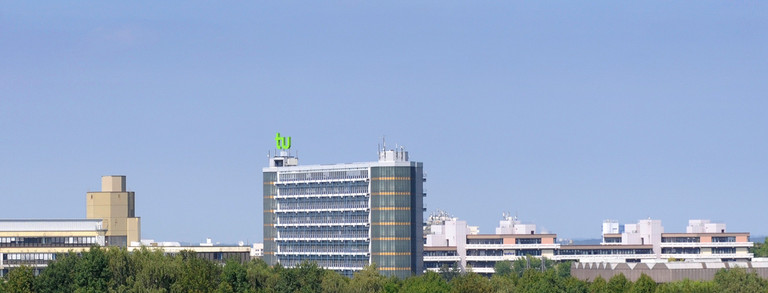TU Students Win “Engineers Without Borders Challenge”
- Top News
- Studying & Teaching at TU Dortmund University
- People

Diyar Karabulut, Vincenzo Madeo, Florian Mindthoff, Maximilian Nocon, Marc Schulte and Lukas Weßeler have designed and built an optics experiment kit for elementary schools in Uganda. It contains a plug-in system for optical components such as lenses and mirrors and a flexible experimentation light adapted to the special conditions in Ugandan classrooms.

The task of the challenge was to develop experiment kits for science lessons for Ugandan schoolchildren in grades 5 to 7. These should contain introductory experiments on STEM topics that the children can carry out in groups by themselves and that have a “Wow!” effect. The students taking part in the competition had to consider which materials were available and workable on site, sufficiently robust for use in schools and at the same time inexpensive. Due to lack of equipment, low funding and large classes with 40 to 60 pupils, teaching in Uganda’s elementary schools is often very theoretical.
Real solutions for real problems
The six students in the winning team are studying industrial engineering and mechanical engineering and took part in this year’s challenge as part of a seminar on project management. In the process, they were also able to enter into direct contact with partners in Uganda responsible for implementing the results. When working on the task, they not only had to apply their technical know-how in practice but also get to grips with social responsibility, cultural differences, and sustainability issues.
In the final round of the “Engineers Without Borders Challenge”, which took place online, they competed against the best teams from the eleven German universities participating in the contest. They presented their project in a short video to an international jury of representatives from NGOs, scientific experts, and Ugandan teachers. The team from TU Dortmund University was able to convince the jury with its well-thought-out concept and its technical execution as well as the experimental materials developed – and was awarded first place.
Contact person for queries:





![[Translate to English:] Partner Four hands are holding the green logo of TU Dortmund University](/storages/tu_website/_processed_/1/d/csm_Partner_Nicole_Rechmann_KW_670eba0154.jpg)




![[Translate to English:] Forschung An apparatus with tubes in a laboratory](/storages/tu_website/_processed_/0/c/csm_Forschung_Juergen_Huhn_4fa3153b51.jpg)
![[Translate to English:] Studium Five students are sitting in a lecture hall. They are talking to each other.](/storages/tu_website/_processed_/c/9/csm_Studium_FelixSchmale_dbdbfb0dd7.jpg)





